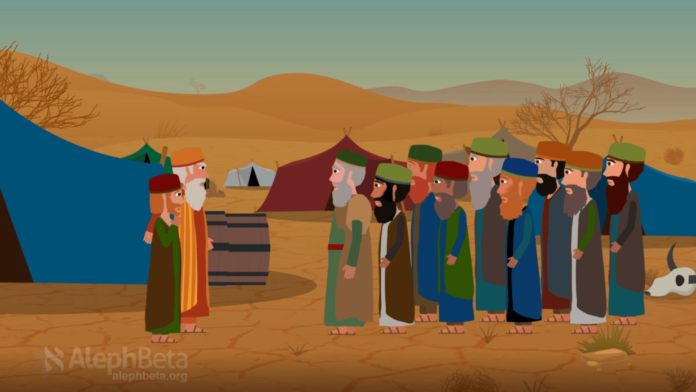
This week’s Torah portion contains 53 mitzvot, a whole slew of tort laws and rules governing our financial exchanges. There passages are expressive perhaps of what Judaism is most famous for: its many detailed commandments.
The underpinnings of these extensive legal verses are perhaps best summarised by Rav Shimshon Raphael Hirsch, the great leader of Nineteenth Century German Jewish Orthodoxy. In one of his famous letters, published in 1836, he wrote that these laws demand us to:
“Respect every human being as your equal. Respect him, his inner self as well as his outer garment – his body – and his life. Respect his property too, as a legal extension of his body. Respect his claim to property or services that you have to render to him, properly measured and counted, as well as his claim to compensation for harm done to his body or property… Never abuse the frailty of his body, mind, or heart, and never misuse your legal power over him.” (Elias, Nineteen Letters, pp.166-167)
Thus, all of these laws ensure that we value every human being. This “demand for justice,” R’ Hirsch continues, “is based upon the equality of all men.”
Yet there is something strikingly absent in R’ Hirsch’s summary, a feature nevertheless prominent in the Torah’s presentation of these numerous, detailed laws that R’ Hirsch seems to leave out.
R’ Hirsch’s constant use of the imperative “respect” reads much like the Ten Commandments of last week’s Torah portion:
“…You shall not murder. You shall not commit adultery. You shall not steal. You shall not bear false witness against your neighbour… You shall not be jealous of your neighbour…” (Shemot, 20)
Like R’ Hirsch’s letter, these read as snappy commands – short, unexplained orders that we must follow. Arguably, however, the Torah only phrases them as such because these are the most base-line moral givens. There are no explanations necessary to instruct us not to steal from or kill our fellow man. The Ten Commandments are not some grand religious vision of how we are to behave; rather they are the most axiomatic principles that no person should ever break. These are the most basic of obligations and are thus presented to us simply as such: “do not… you shall not…”
Yet in contrast to the Ten Commandments, however, in our Torah portion, dealing with the intricacies of financial laws, the Torah peppers its lists of mitzvot with the most emotive of statements and with expansive, fully fleshed-out justifications:
“…You shall not mistreat a stranger, nor shall you oppress him, for you were strangers in the land of Egypt… You shall not oppress any widow or orphan. If you oppress him, [beware,] for if he cries out to Me, I will surely hear his cry… If you take your neighbour’s garment as security, until sunset you shall return it to him, for it is his only covering; it is his garment for his skin. With what shall he lie? And it shall be [that] if he cries out to Me, I will hear because I am gracious? … You shall not oppress a stranger, for you know the feelings of the stranger, since you were strangers in the land of Egypt…” (Shemot, 21-23)
The Torah is teaching us perhaps one of the most important lessons in human relationships, and revealing the wisdom of its legislation. The Ten Commandments, the most basic “don’ts” of mankind (stealing, murder, false testimony), should have no justifications and rationales; they indeed stand as the most elementary, unquestionable demands on us as human beings and we should never violate them or even question them. However, beyond that, entering into the complex arena of societal living, regarding the laws regulating our business dealings, the Torah appeals to our emotions and to our past experience as slaves to fully elicit our emotions and affinity for the poor and vulnerable. The Torah wants us to perform these detailed laws not simply as snappy commands for us to follow (like the Ten Commandments or R’ Hirsch’s imperatives above), but as living, feeling human beings, sensitive to the pains of others and attuned to their plight. It wants us to fulfil its many laws with the full force of our humanity, the great depths of our moral personalities, as it intends by them to ensure that we are close to other people and intimately care for their welfare.
True, there are over fiftly intricate mitzvot in this Sedra. Yet we shouldn’t just perform them as legal rituals. Inserting these emotive passages within this long list of laws teaches us that these mitzvot are not intended to be done mechanically, simply in order to discharge our legal obligations; rather their performance is meant to be powered by and filled with a deep empathy and affinity for those more vulnerable than us.
Gav works as an Account Executive in Public Relations. The views expressed here are entirely his own. Questions? gavcohn@gmail.com.









